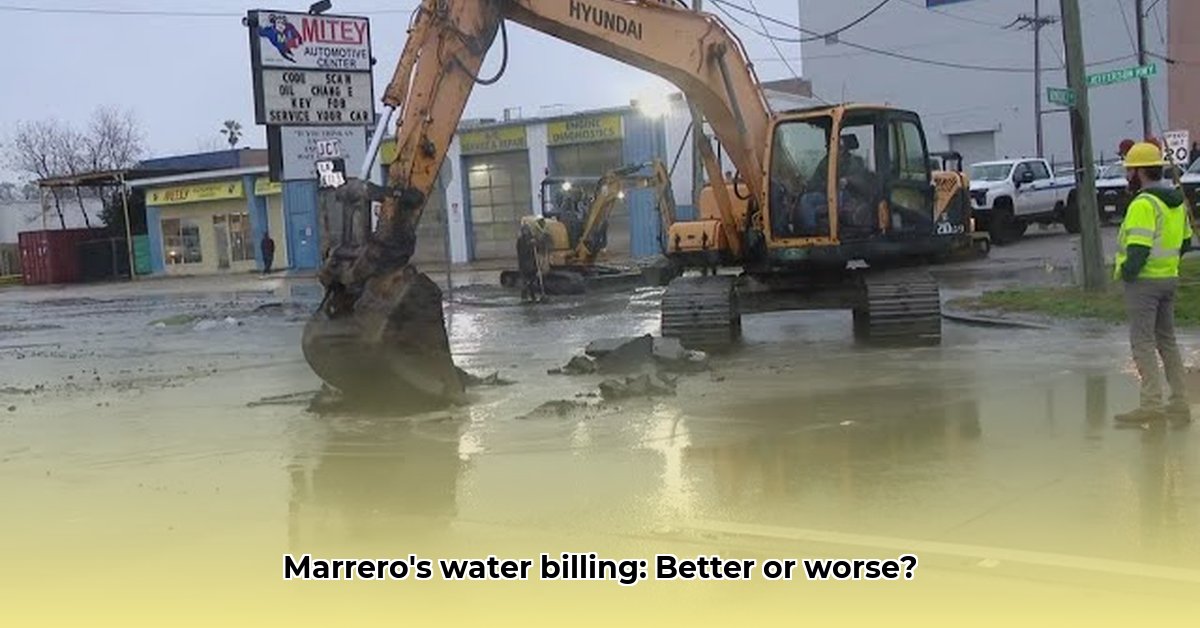
The Jefferson Parish Department of Water in Marrero (JPDoWM) has served the community for over 90 years, providing water services to more than 159,000 accounts. This article assesses the department's service delivery and its efforts to modernize its billing system through the implementation of PayStar, an online payment platform. We analyze the system's potential benefits and drawbacks, considering various stakeholder perspectives and outlining actionable recommendations for improving service and security.
Operational Efficiency & Service Quality
JPDoWM's sustained service for over 90 years demonstrates a robust operational capability. Serving 159,000 accounts showcases significant scale and expertise. However, a complete assessment requires more detailed data. While the number of accounts and years of operation are impressive data points, a full understanding of operational efficiency necessitates further information on water treatment processes, operational costs, and water loss rates. This data would enable a more comprehensive evaluation of the department's performance and identify areas for potential improvement. How can we quantify the efficiency gains from optimized water treatment processes?
Payment System Modernization (PayStar)
The introduction of the PayStar online payment system aims to improve customer service and operational efficiency. PayStar offers residents greater convenience through online bill payments and 24/7 access to account information. This potentially reduces administrative overhead for JPDoWM. However, several factors must be considered:
Potential Benefits:
- Increased Convenience: Online access eliminates trips to physical payment locations.
- Enhanced Efficiency: Streamlined payment processing reduces manual labor and potential delays.
- Improved Customer Service: 24/7 access to account information enhances responsiveness to customer inquiries.
- Environmental Friendliness: Reduced paper usage contributes to a more sustainable practice.
Potential Drawbacks:
- Digital Literacy and Accessibility: A portion of the population may lack the technological skills or internet access necessary to use PayStar effectively.
- Security Vulnerabilities: Online systems are susceptible to cyber threats. Robust security measures including robust encryption, firewalls, and regular security audits are crucial.
- System Integration Challenges: Integrating PayStar with existing JPDoWM systems requires careful planning and execution to prevent disruptions in service.
- Long-Term Cost-Effectiveness: A thorough cost-benefit analysis is needed to evaluate the long-term financial implications, including maintenance, support, and potential upgrades.
Quantitative data on user adoption rates, customer satisfaction surveys, and independent security audits are crucial for a comprehensive evaluation of PayStar's success. How can we measure user satisfaction with the PayStar system effectively?
Stakeholder Analysis
Successful PayStar implementation depends on the collaborative efforts of several key stakeholders:
| Stakeholder | Short-Term Goals | Long-Term Goals |
|---|---|---|
| Jefferson Parish Dept of Water Marrero | Assess PayStar performance; gather customer feedback; address technical issues. | Develop a comprehensive long-term infrastructure plan; improve water quality; address aging pipes and leaks. |
| Jefferson Parish Residents | Utilize PayStar; provide feedback on ease of use and effectiveness. | Experience improved water service and billing processes. |
| PayStar | Monitor system usage; provide technical support; ensure system security. | Continuously update the system and address evolving user concerns. |
| Jefferson Parish Government | Oversee budget allocation; ensure compliance with regulations. | Monitor KPIs to evaluate program effectiveness; secure funding for long-term upgrades. |
Risk Assessment
Proactive risk management is essential for the success of the PayStar system and the overall water service infrastructure. Key risks and their mitigation strategies are summarized below:
| Risk Category | Likelihood | Impact | Mitigation Strategy |
|---|---|---|---|
| Security Breach | Medium | High | Robust security protocols, frequent audits, a comprehensive incident response plan. |
| System Failure | Medium | Very High | Proactive maintenance, systematic infrastructure replacements, emergency contingency plans. |
| Data Loss/Corruption | Low | Medium | Regular data backups, system redundancy, disaster recovery plans. |
| Water Quality Issues | Low | High | Enhanced water treatment; exploration of alternative water sources (where feasible). |
Regulatory Implications
JPDoWM must comply with various regulations, including drinking water quality standards (like those set by the EPA), billing practices, data privacy regulations (especially concerning PayStar's handling of sensitive customer information), and environmental protection laws. Non-compliance can result in significant penalties and damage to public trust.
Conclusion
The successful modernization of JPDoWM's billing system with PayStar requires ongoing monitoring, evaluation, and adaptation. By addressing the identified potential drawbacks and proactively managing risks, JPDoWM can optimize its service delivery, enhance customer satisfaction, and ensure the long-term sustainability of its operations. Continued investment in infrastructure upgrades and robust cybersecurity measures will be crucial to maintaining water quality and securing customer data. A commitment to transparent communication with residents will build trust and ensure that the modernization efforts enhance – not detract from – the quality of service.